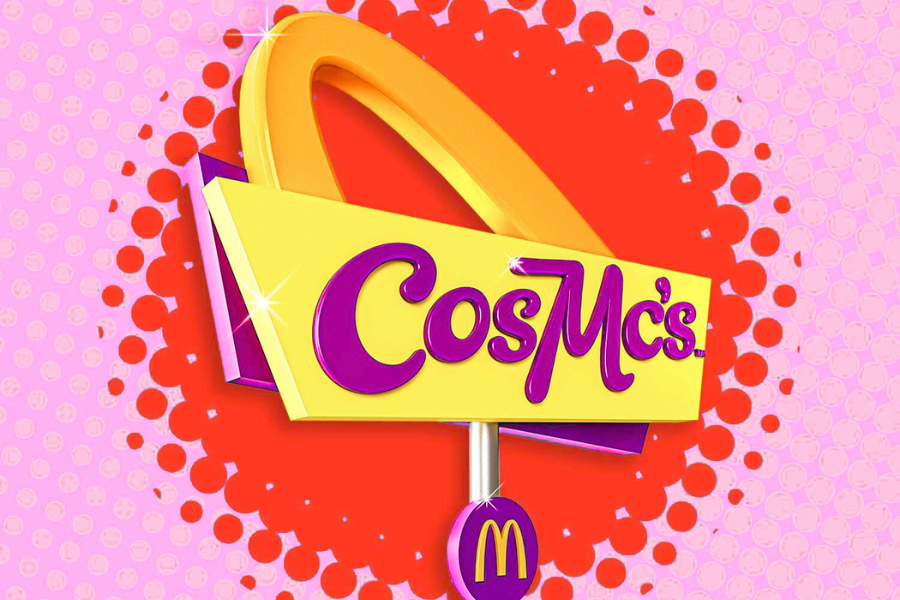“Bring us the girl and wipe away the debt.”
From the beginning, the deceptively simple opening task of “BioShock Infinite” brings to mind the central plot of a Mario game, albeit in 1912. Booker DeWitt, who is assumed by the player, is tasked with the retrieval of a girl from a mysterious city, and in exchange he will be relieved of the mysterious debts he has acquired in his shady past. DeWitt is dropped off at a lighthouse, and the player is left to his own devices.
Much like the rest of “BioShock Infinite,” however, nothing is as it seems. After reaching the top of the lighthouse, the player sees a series of bells, each with their own symbol; the key, the sword and the scroll. Ring these bells and a response is triggered that would not look out of place in “Close Encounters of the Third Kind”. A chair appears, and DeWitt sits down in it. The next thing the player knows, his arms are strapped down and he is unable to move. A voice counts down; five, four, three, two, one… the chair, with the player in it, rockets up into Columbia, a former flying embassy of the United States but now a racist, isolationist, exploitative dystopia.
Developer Irrational Games puts an extraordinary amount of trust in the player from the get-go and “BioShock Infinite” separates itself from the pack by not immediately giving you a gun, teaching you to shoot, and throwing you into a battlefield with a bunch of Nazis/zombies/terrorists to get you to pull that trigger finger without a good reason why.
In fact, “BioShock Infinite” plays for a good half an hour before anybody is killed. This is heresy in the shooter genre, but it works; you will be so mesmerized by the idyllic Disneyland quality of Columbia that you won’t want to pull that trigger and send this seemingly perfect society crashing down.
But man, is pulling that trigger fun. Combat in “BioShock Infinite” takes the same route from its 2007 predecessor by combining elemental powers on the left trigger with gunplay on the right. Players will have all powers, called Vigors, at their disposal but will only be able to quickly switch between two. Although there are many, many weapons in “BioShock Infinite,” the player may only carry two at a time. Gear, which can be equipped to grant extra abilities, is found throughout the game and adds semi-RPG qualities to an already deep fighting system. Additionally, “tears-” holes in the space-time continuum – constantly provide extra cover, allies, health or weapons that help the player surmount seemingly impossible odds (especially on harder difficulty settings).
Here to exploit those holes is DeWitt’s near-constant companion Elizabeth – the very girl he is tasked to retrieve. Elizabeth has the unique power to manipulate tears, which everyone can see but nobody can control, making her very valuable to her captor (and “Infinite”’s main antagonist), Columbia’s religious, xenophobic founder Zachary Comstock. The tears play a significant role in the game’s mysterious and addictive story, as does the developing relationship between the player and his or her companion.
“BioShock Infinite” is a fifteen- to twenty-hour rollercoaster ride, set in one of the most beautiful game environments to date. The level of detail Irrational has put into its creation does not go unnoticed, although since levels are so big and open, individual textures can occasionally be muddy on the aging hardware of the Xbox 360 and PlayStation 3. PCs, provided they are reasonably up-to-date, make no such sacrifice and the game looks gorgeous both up close and far away.
It is hard to criticize a game like “BioShock Infinite,” but it is not perfect. Occasionally, Elizabeth would be nearby an exploding grenade or get obviously shot, only to take no damage. Elizabeth’s invulnerability is an intentional decision by the developer, but its obviousness occasionally removes the player from an otherwise captivating experience. Players also must rely on checkpoints whenever they have to put their controller down, as quicksaving is not enabled in “Infinite.” Additionally, the game is too easy on the lower difficulty levels. Even on Hard, I found myself coasting through more than a few firefights but was always put in my place whenever one of the game’s bosses came around. The difficulty ramps up exponentially on 1999 mode, which is unlocked after completing the game and gives younger gamers like me a glimpse at just how hard games were in the nineties.
Additionally, some players may find the lack of multiplayer disappointing and even a deal breaker. The real disappointment is that people will pass up a fantastic game because they don’t have the opportunity to shoot their friends and get killed by twelve year-olds. “BioShock Infinite” is a trip that is well worth $60 even just for a campaign, as not only will players experience excellent, fun combat and a fantastic story that grapples with uncomfortable issues such as racism, American exceptionalism and free will, they will own a piece of history; a video game that will have pushed the boundaries of what games can bring to the intellectual and literary playing field.










